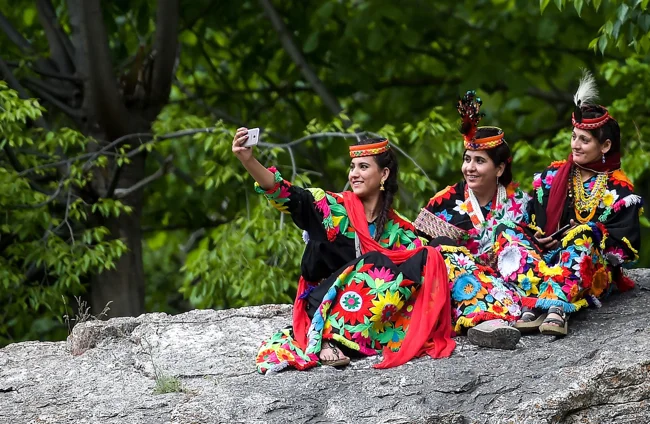Kalash - a unique Pakistani people with a Slavic appearance (12 photos)
Probably, any traveler, finding himself in Pakistan, expects to see among the local population entirely dark-skinned, brown-eyed and dark-haired people. And, in fact, that’s how it is. But, as with any rule, the typical characteristics of the local population of Pakistan also have their exceptions, and their name is Kalash. .webp)
The Kalash are a small people inhabiting two valleys of the right tributaries of the Chitral (Kunar) River in the mountains of the southern Hindu Kush in the Chitral district of Khyber Pakhtunkhwa province (Pakistan). The most striking distinctive features of this people are, firstly, their unique religion. The Kalash live in a predominantly Muslim society, and yet they themselves still profess a pagan religion. Secondly, the appearance of the representatives of this small nation is truly amazing! The Kalash are, first of all, Pakistanis, however, looking at them, you can’t help but doubt this. The Kalash have a typical Slavic appearance: blond hair, white skin, blue or gray eyes. 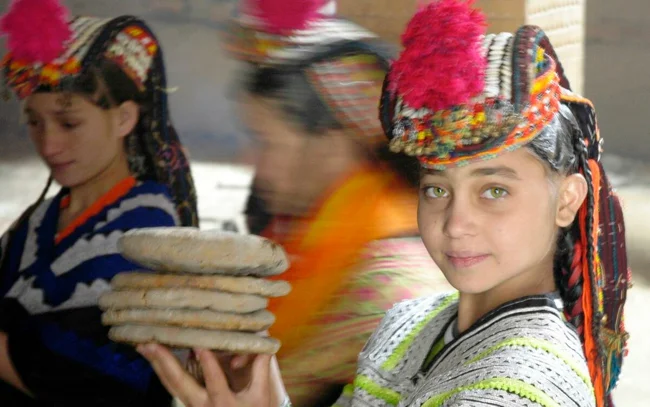
In connection with this circumstance, the life of this people is surrounded by all kinds of legends. So, according to one of them, the Kalash are the descendants of the soldiers of Alexander the Great. According to the second, they are the heirs of the ancient “Aryans” of the Andronovo culture, who came to the lands of modern Pakistan from the northern steppes of Eurasia - the Black Sea and Azov regions. And the Kalash themselves consider themselves special. They sacredly preserve their traditions and believe that their people will exist as long as local women wear national clothes. 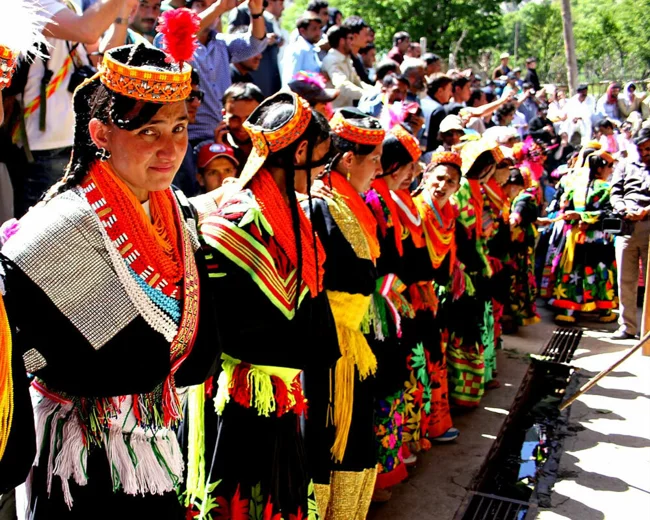
An important part in the life of the Kalash is occupied by holidays, of which there are many in the calendar of this small people. However, the main ones are still birthdays and funerals. And, in principle, these two events are celebrated on the same scale, since, let me remind you, the Kalash are pagans who believe in the afterlife. Therefore, death for them is not a tragedy, but only a transition to another world. The Kalash believe that both earthly and afterlife lives are of equal value, which means they should be lived serenely. But for this you need to appease the gods thoroughly. 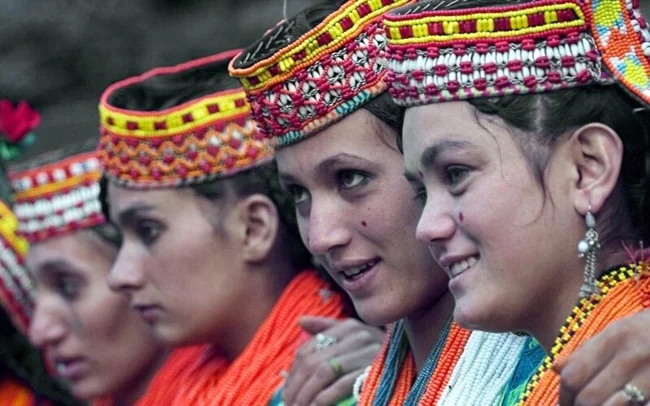
By the way, the Kalash divine pantheon is difficult to compare with the already existing pantheons of other nations. Historians believe that it is most similar to the Greek, since both contain the supreme god Desau and many other similar deities and spirits. The Kalash turn to the gods through the dehara, the priest, who, in fact, performs the sacrifices. All Kalash rituals are accompanied by ritual dances and songs and a demonstration of national costumes. 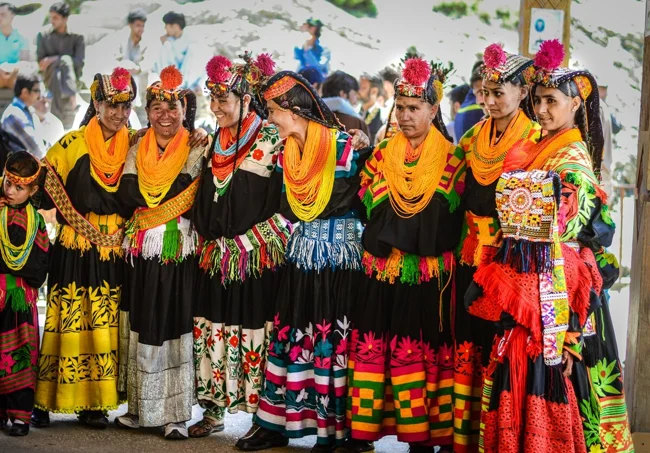
And in general, the Kalash are very jealous of their faith: they try in every possible way to preserve it and suppress all attempts to convert them to Islam. The only exceptions are girls who decide to marry a man belonging to a different faith. However, such cases are rare. 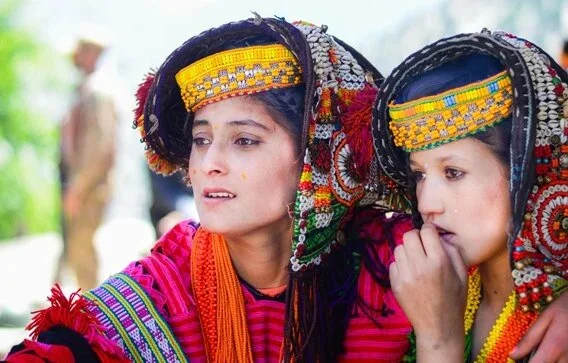
Greek influence can be traced in other areas of Kalash life. For example, they build houses according to the Macedonian principle - from stones and logs, and decorate the facades with rosettes, stars and intricate Greek patterns. But thanks to Japanese support, Kalash villages were electrified. 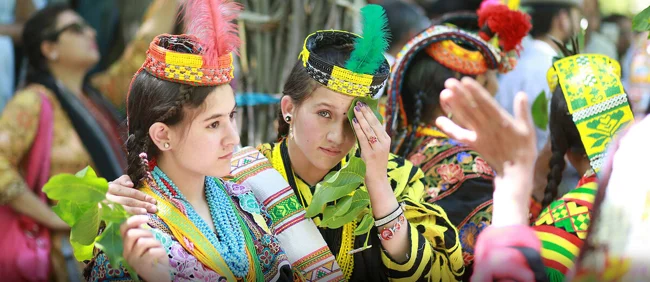
The main daily occupations of the Kalash are agriculture and cattle breeding. Local residents bake their own bread, make butter and cheese, so these products form the basis of the daily diet. Goat milk is precisely one of the main food products of the Kalash. However, women are allowed to consume it only fresh. The slaughter of livestock takes place in a ceremonial atmosphere, and women are only allowed to eat meat from female animals. 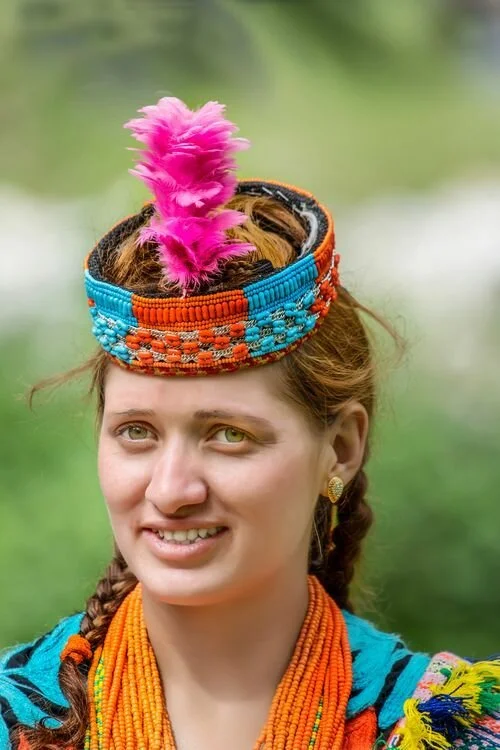
In addition, the Kalash grow wheat, barley, millet and corn, and also collect walnuts, mulberries and grapes, from which they later make wine. In Kalash communities there is a division into “ranks” - this is something like a social hierarchy. And, of course, the higher this rank, the more respected and revered the person is considered. A village resident who wants to receive a higher rank, as well as other ritual and social rights, must arrange, at his own expense, of course, a “feast of merit” - a special ritual feast to which all residents of the settlement are invited. 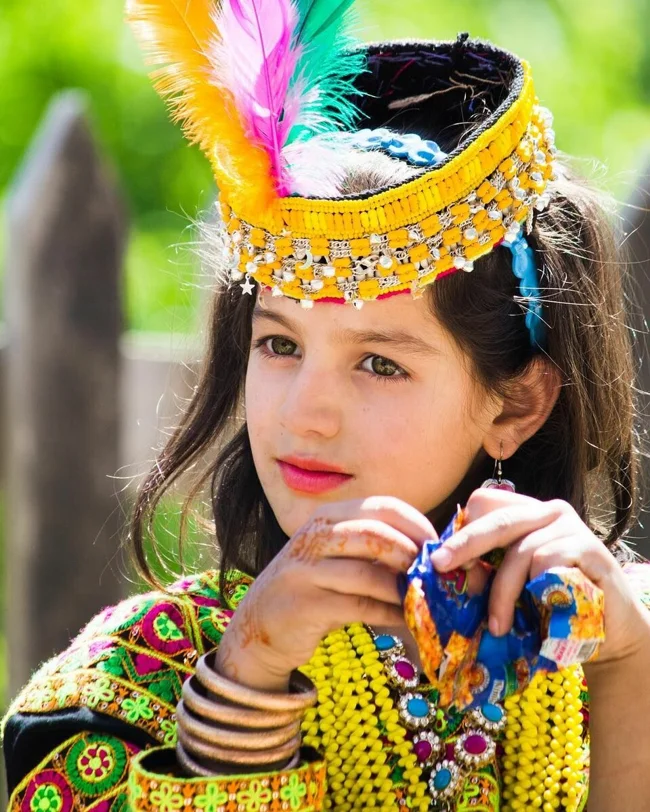
A person’s rank is determined by his “merits” to society: for example, the funds spent on a holiday and the presence of livestock. A person who spares no expense on such a holiday receives a vote at a meeting of village elders and the right to install a posthumous statue. Also, the rank and respect of fellow villagers could be earned through military achievements: by raiding neighboring settlements or killing enemies. 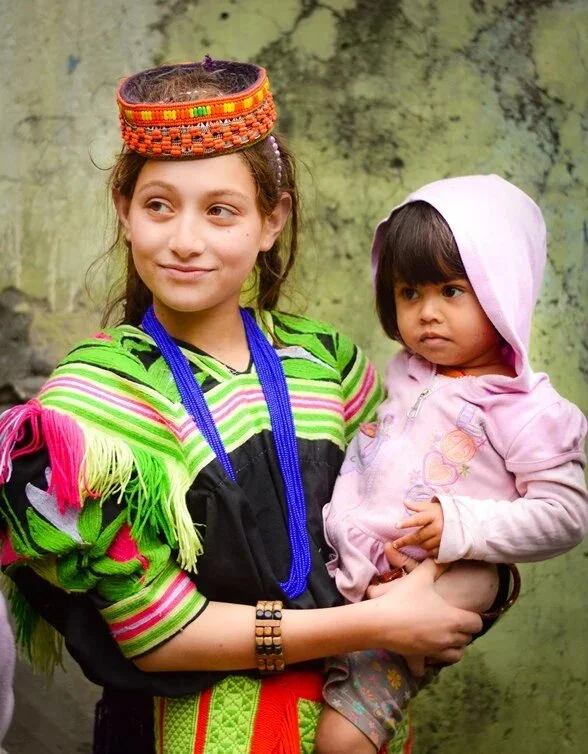
Relationships between a man and a woman among the Kalash are built on the principles of monogamy, but it is not at all necessary that such a marriage will last a lifetime. Kalash women have quite a lot of freedoms. For example, they can choose their chosen one and even get a divorce if suddenly family life does not work out. With only one condition: the new lover will have to pay the ex-husband compensation in the double amount of the bride's dowry! But among the Kalash, childbirth is considered a “dirty” process, and when the “x” moment comes in a woman’s life, she retires to a special place called “bashali”, which no one from the village should approach. 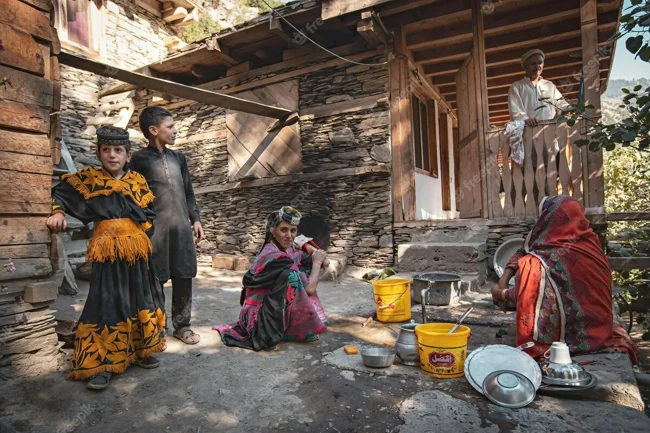
Today, Kalash are actually a landmark of Pakistan, and their settlements are often visited by tourists and media representatives. Such attention, it must be said, does not please the Kalash too much, accustomed to a quiet and measured life. Therefore, when winter begins in Pakistan, the Kalash breathe a sigh of relief. In winter, all the roads leading to the village are generously covered with snow, and it is not possible for curious onlookers to get to the Kalash settlement. 